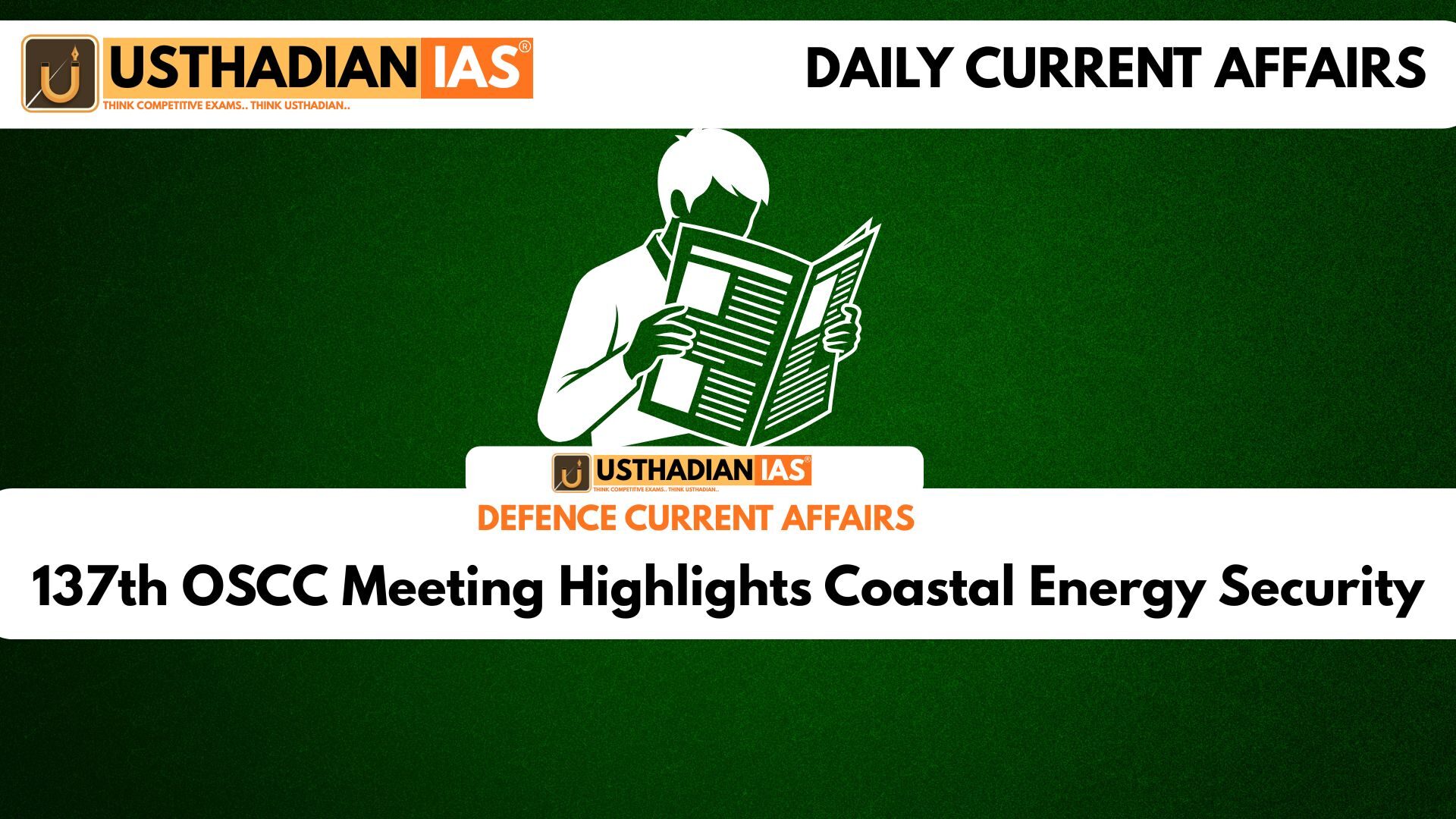India sharpens offshore defence
137th OSCC Meeting Highlights Coastal Energy Security: The 137th meeting of the Offshore Security Coordination Committee (OSCC) was held in New Delhi on June 12, 2025, under the leadership of Director General Paramesh Sivamani of the Indian Coast Guard (ICG). It wasn’t just a routine session. Officials from the defence, energy, and intelligence sectors joined forces to review India’s readiness in protecting its offshore energy assets.
These installations, like oil rigs and gas platforms, are lifelines for India’s energy sector. With increasing maritime threats, both man-made and natural, India is doubling down on strengthening its coastal infrastructure security.
What made this meeting crucial?
The timing of the OSCC meeting couldn’t be more significant. There’s growing concern over threats to energy infrastructure — from cyber-attacks to physical sabotage. The focus was not only on evaluating existing preparedness, but also on building stronger joint response mechanisms.
This means better communication, shared intelligence, and faster reactions. The goal? A unified approach to security, involving military, central ministries, local police, and technical agencies.
Who came together?
The coordination showcased in this meeting was extensive. The Indian Navy, Indian Air Force, and intelligence units joined hands with central ministries such as Petroleum & Natural Gas, Home Affairs, and External Affairs. Key energy stakeholders like ONGC and the Directorate General of Hydrocarbons were also at the table.
Police departments from coastal states like Gujarat, Maharashtra, and Andhra Pradesh added state-level insights, while the Directorate General of Shipping contributed maritime expertise.
Focus areas discussed
Among the many points raised, a few stood out:
- Enhanced joint drills between maritime and energy agencies.
- Intelligence sharing in real-time to detect and neutralize threats.
- Regular surveillance operations around offshore platforms.
- Fast-tracking response protocols during natural disasters or hostile incidents.
OSCC’s legacy and role
The OSCC, formed in 1978, plays a central role in safeguarding offshore installations. While it mainly advises and formulates security policies, its impact is practical and far-reaching. The committee ensures that energy-related maritime threats are handled collectively.
Interestingly, India’s oil production from offshore installations contributes to nearly 60% of the country’s crude output, making their protection a strategic priority.
Way forward
As offshore energy becomes increasingly vital, especially with India pushing for energy self-sufficiency, such multi-agency collaboration is not optional—it’s essential. By enhancing coastal preparedness, the OSCC is not only defending assets but also ensuring the country’s uninterrupted energy flow.
This is yet another step toward making India’s blue economy safer and more robust.
Static Usthadian Current Affairs Table
| Topic | Details |
| Meeting Name | 137th OSCC Meeting |
| Date | June 12, 2025 |
| Chaired by | DG Paramesh Sivamani, Indian Coast Guard |
| Established | 1978 |
| Key Agencies | Indian Navy, ONGC, IB, DG Shipping, State Police, Ministry of Petroleum |
| Focus | Offshore energy infrastructure security, joint drills, intelligence sharing |
| Strategic Importance | Offshore rigs supply ~60% of India’s crude oil |
| Location of Installations | Arabian Sea, Bay of Bengal (mainly Gujarat, Maharashtra, Andhra Pradesh) |
| Blue Economy | Refers to sustainable use of ocean resources for economic growth |
| Coastal Security Initiative | Multi-agency coordination and drills initiated post-2008 Mumbai attacks |








